Navigating Global Recruitment Challenges: Strategic Solutions for Success
Global recruitment is no walk in the park—complex regulations, cultural differences, and skill shortages create hurdles at every turn. If you’re managing talent acquisition across borders, you know these recruitment challenges can stall your progress and frustrate your hiring goals. This guide breaks down practical recruitment strategies to help you navigate international hiring successfully and secure top talent in specialized sectors.## Understanding Global Recruitment Challenges

The world of global recruitment is full of potential, but it doesn’t come without its hurdles. From compliance issues to cultural nuances, let’s delve into some of these challenges together.
Navigating Complex Regulations
When hiring across borders, you face a maze of legal requirements. Each country has its own rules, and missing even one can lead to serious problems. You need to know about work permits, tax obligations, and employment laws. For instance, in the EU, the General Data Protection Regulation (GDPR) adds another layer of complexity to data handling. Research and prepare thoroughly before making decisions. This resource offers insights into managing these complexities.
Every rule affects how you hire and manage employees. Adapting your recruitment strategies to comply with local laws is essential. Ignoring these could result in hefty fines or even legal action. The longer you delay in understanding these regulations, the riskier your global hiring becomes.
Addressing Cultural Differences
Cultural differences can make or break your recruitment efforts. Misunderstandings in communication or expectations often arise due to cultural gaps. It’s crucial to learn about the social norms and values of the regions you’re targeting. For example, in some cultures, direct communication is valued, while in others, indirect approaches are preferred.
Building a culturally aware team can help bridge these gaps. Encourage your team to learn and respect cultural differences. This understanding can enhance your recruitment process, making it smoother and more inclusive. Most people assume cultural differences only lead to conflicts, but they can also spark creativity and innovation within teams.
Strategic Solutions for Success

To overcome these obstacles, you need a solid strategy. Focusing on effective recruitment methods and embracing cultural diversity can lead to better outcomes in global hiring.
Effective Recruitment Strategies
A key to successful recruitment is adopting strategies that align with your goals. Start by defining clear job descriptions. This helps in attracting the right candidates. Use data to understand where the best talent is located and target those areas.
Technology plays a huge role here. Utilize digital platforms to reach a wider audience. Video interviews and online assessments can streamline your process. 85% of companies now use digital tools in recruitment, showing their effectiveness. It’s important to keep up with trends and adjust your methods accordingly.
Remember, the right strategy not only attracts talent but also retains it. Offer competitive packages and clear growth paths to keep your hires engaged and loyal. If you’re unsure where to start, this article provides some useful tips.
Cross-Cultural Hiring Techniques
Hiring across cultures requires sensitivity and awareness. Tailor your interview process to accommodate different cultural backgrounds. For instance, some candidates may be more reserved in expressing their achievements. Understanding these nuances can improve your selection process.
Training your recruitment team in cultural intelligence is invaluable. It equips them to better assess candidates and reduces biases. Cultural diversity should not be seen as a barrier, but a strength. When managed well, it leads to a robust, innovative workforce that drives success.
Incorporating feedback from diverse teams can reshape your recruitment approach. Listen to their experiences and adjust strategies to be more inclusive. Learn more about how diversity can enhance your recruitment process.
Specialized Sectors: Tailored Approaches

Recruiting for specialized sectors requires even more precision. Each industry has unique needs that demand a tailored approach.
Manufacturing and Engineering Focus
In manufacturing and engineering, technical skills are paramount. Finding candidates with the right expertise can be challenging. These sectors often face skill shortages, making recruitment even tougher. You need targeted strategies to attract top talent.
Partner with educational institutions to create talent pipelines. Apprenticeships and internships can introduce new talent to your company early on. Offering ongoing training and development keeps your team’s skills sharp and relevant. 60% of companies in these sectors prioritize skill development to remain competitive.
Networking within industry-specific groups can also yield candidates with the precise skills you need. Don’t underestimate the power of referrals from current employees. They know the industry and can bring in like-minded talent. For more detailed strategies, check out this guide.
Real Estate and Property Development Insights
Real estate and property development require a blend of technical and interpersonal skills. Recruitment in this sector focuses on finding candidates who excel in both. These roles demand individuals who are not only technically competent but also excellent communicators.
Leverage online platforms to showcase your company culture and values. Prospective candidates often seek companies whose values align with their own. Highlighting this can attract the right talent. Engaging with industry-specific events also widens your pool of potential candidates.
Understanding local market trends gives you an edge. Tailor your recruitment strategies to meet the unique demands of each region. This knowledge ensures you attract candidates who are not only skilled but also familiar with local markets. Adaptability is crucial in this ever-changing landscape.
In conclusion, tackling global recruitment challenges requires a strategic, informed approach. Keep learning, adapting, and refining your strategies to stay ahead. With the right tools and mindset, you can navigate the complexities of international hiring successfully.


